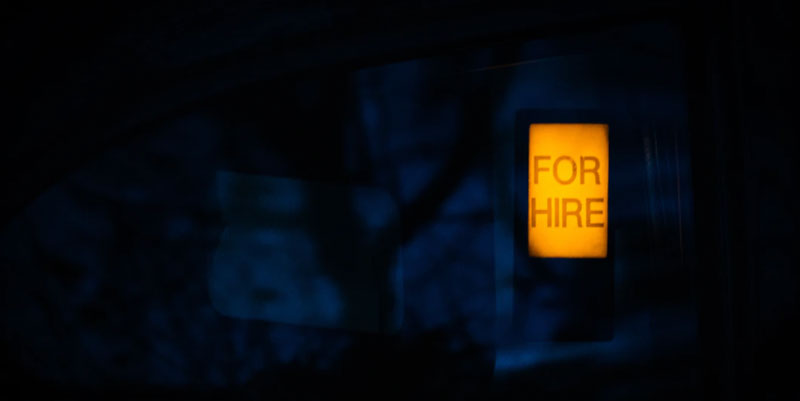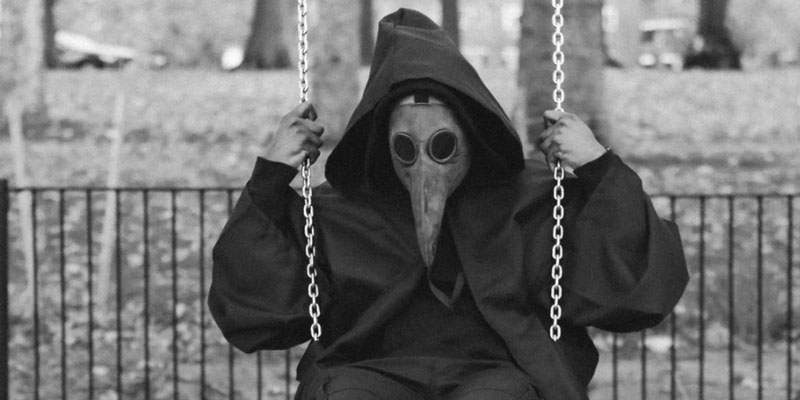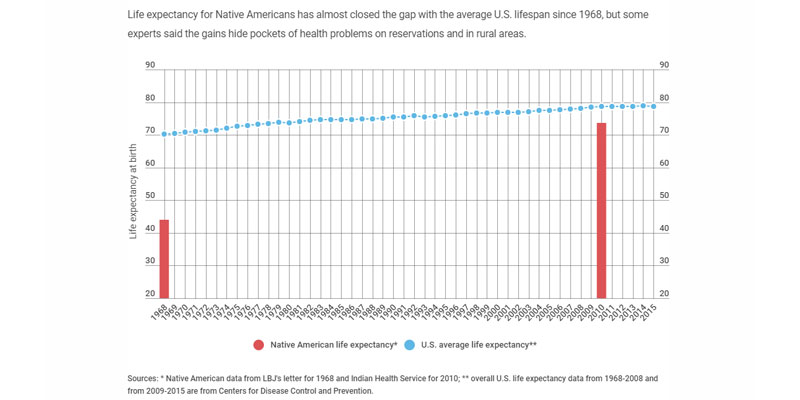Mike Stenhouse invited me on his In the Dugout show, yesterday, to talk about the state Department of Health’s use of fidget spinners to seed the schools of Rhode Island with a desire for vaccination.
Click here for the full episode.
Click here for the segment in which I appeared.
The RI Department of Labor and Training’s headline for monthly employment data tells some of the bad story: “Rhode Island-Based Jobs Fell by 2,100 from September; October Unemployment Rate Increases to 5.4 Percent“:
Total nonfarm payroll employment in Rhode Island totaled 479,200 in October, reflecting a loss of 2,100 jobs from the revised September job count of 481,300. The monthly job loss in October marks the first job loss since December 2020.
That isn’t all, though. The number of Rhode Islanders who say they are employed (which includes those working out of state and those working for themselves) was 522,100, while the number who say they are either employed or looking for work (i.e., the “labor force”) was 551,700.
Curiously, the press release mentions that these numbers are up 25,200 and 15,800 from the same month last year, but they don’t say how they compare with the month before. Wonder why.
Perhaps it’s because the state didn’t want to point out that the preliminary number for employment the month before was 547,116, indicating 25,016 fewer working Rhode Islanders in October than in September. Meanwhile, the labor force fell by 25,528.
In fairness to the PR team, something is probably fishy with these numbers. As currently reported at that link, the September numbers were way, way up from the August numbers — 43,330 when it comes to employment.
Thus, the bad news of the jobs losses is compounded by the bad news that we can’t really trust the numbers by which we gauge our sense of how well our economy is doing.
Featured image by The Blowup on Unsplash.
[Open full post]Cal Newport describes an interesting natural experiment created by the way Facebook rolled out from one campus to the next:
The authors of this paper connect a dataset containing the dates when Facebook was introduced to 775 different colleges with answers from seventeen consecutive waves of the National College Health Assessment (NCHA), a comprehensive and longstanding survey of student mental health.
Using a statistical technique called difference in differences, the researchers quantified changes in the mental health status of students right before and right after they were given access to Facebook.
They found that the effect was about one-fifth as large as losing your job, which is (let’s say) pretty big.
I’m not sure we can stop this train now, however, which suggests the importance of the other side of that comparison. Some people lose their job and fall apart, while others set to work to wind up in an even better place. Just so, social media can create huge opportunities; we just have to learn (and teach our children) to manage it.
[Open full post]Problems with Rhode Island’s health care industry indicate an across-the-board failure of government management. Remember when they shut down our economy to avoid overwhelming our medical infrastructure? Well, that move — and all that came after it — may be resulting in a much more intractable, longer-term failure.
Want to count the ways?
One. Staff at facilities are stressed, overburdened, and facing undue restrictions.
The most emblematic restriction, of course, is the mandate that all health care workers must be vaccinated, regardless of individual circumstances. This policy could have come straight from the classic movie, Idiocracy. Officials knew about staffing challenges beforehand, and yet chose to take the hardest possible line, refusing to make any enduring accommodations whatsoever.
But that policy is only emblematic. Our regulatory system (along with labor union priority) has long been overly restrictive, emphasizing government control over adaptability and actual need. Government and politics simply are not capable of micromanaging complex systems.
Two. Lockdowns and the constant drumbeat of doom are doing huge damage to all of our mental health.
Note this, from the above-linked Boston Globe article by Alexa Gagosz:
“But what we are also seeing, in addition to our sick medical patients, is an increase in the number of behavioral health patients, including behavioral health pediatric patients and that’s because of a lack of beds for them — not just at Landmark,” [Dr. Matthew] Sarasin said. “And they’re staying in the emergency department longer.”
Increases in overdoses and suicides are only the extreme tips of a much larger problem. We can bet that they indicate large increases in various stages of substance abuse, depression, stress, and other markers of mental unhealth.
Three. Restrictions and fear kept people from taking addressing problems sooner.
In addition to increased mental health problems, our government’s response to COVID kept people out of doctors’ offices and hospitals for regular checkups and screenings as well as non-emergency surgery and treatments. There’s a reason we do those things, and we’re going to be dealing with the consequences of taking a break from them for decades to come.
That is one reason forbidding hospitals from providing non-emergency services as punishment for continuing to schedule unvaccinated staff is so crazy that even the characters of Idiocracy wouldn’t have thought it reasonable.
As the government and news media ramp up their irresponsible hysteria for COVID 3, The Relapse, it is going to be up to the public to be the rational adults. We must insist that government and its satellites stop pretending they can come up with the answers and therefore should have the responsibility. They can’t, and they shouldn’t.
Sorry, folks, but that means only you can and only you should.
Featured image by Daniel Adesina on Unsplash.
[Open full post]In South Carolina, school districts and now the governor have taken parental concerns about explicit material in school libraries, as Matt McGregor reports for The Epoch Times:
“It has come to my attention that public schools in South Carolina may be providing students with access—whether in school libraries, electronic databases, or both—to completely inappropriate books and materials, including sexually explicit and obscene images or depictions,” [Governor Henry] McMaster said in a memorandum to the South Carolina Department of Education (SCDE) on Wednesday.
McMaster referred to an incident in the Fort Mill School District in which he said parents petitioned to remove “Gender Queer: A Memoir” by Maia Kobabe.
In Rhode Island, by contrast, North Kingstown Superintendent Philip Auger insists the book supports “the overall health and well being [of] LGBTQ youth.”
[Open full post]I don’t know that I’ve ever seen it characterized as “doubling down” before when a party to a lawsuit has appealed to a higher court, but here’s Sarah Doiron on WPRI:
Several parents who are challenging the state’s school mask mandate are doubling down on their efforts by appealing a Rhode Island Superior Court judge’s decision last week to uphold it.
As lead plaintiff Richard Southwell suggests, the court did suggest children are being harmed, only finding that the government’s interests were overriding. However one feels about that balance, it’s a legal question that should be answered, and that requires the highest available court.
[Open full post]At the risk of expressing a forbidden opinion, this is not a healthy perspective:
Even if Indigenous people spend Thanksgiving with family and festivities, [Tomaquag Museum executive director Lorén Spears] said, “They still know that this isn’t always a happy time for us because it reminds us of all the trauma and loss that our communities have felt due to the conquest that took place here and how it still affects us today economically: Health disparities, educational disparities, the list goes on.”
We should absolutely learn about and remember the past, but reifying it for decades or centuries — making it a tangible thing in the here and now — only prolongs its effects, affecting health and, certainly, education. Just so are surveys finding younger sexual minorities’ false reification of past discrimination is having harmful effects on their health and success now.
We can observe a similar principle in our personal lives. Unfortunate things have happened to all of us, whether physical, mental, professional, or interpersonal, but those things are part of the path that brought us to where we are, which can conceivably be better than where we otherwise would have been.
After all, Spears is appearing on a podcast on the Internet, sharing her ideas with many more people than would have been possible just a few decades ago, let alone the centuries before Europeans traveled to the Americas. Yes, the life expectancy of Native Americans is lower than for non-Hispanic whites (78.4 years, versus 80.6 years), but that is up from a gap of nearly 30 years since 1968, when the numbers were 44 years for Native Americans and 70 years for the overall population, as illustrated by the chart in this post’s featured image. A chart comparing whites and blacks suggests this trend goes back much farther.
It is a tragic note of history that humanity was so slow to value human life and foster a sense of the common cause of all humanity, and we shouldn’t hide that reality, but valorizing the harms humanity’s moral lethargy did to our ancestors can only slow down continued progress.
[Open full post]Nicole Solas and Jon Riches of the Goldwater Institute talked to Rich Lowry of National Review about Nicole’s ongoing battle against the South Kingstown School Department.
[Open full post]
If history repeated with a twist, would you notice? I’ve wondered that often, over the years, and have marveled how difficult it seems for people to spot trends and recognize analogies.
A recent example came courtesy of Paul Dion when he commented, “Absolutely disgusting,” while sharing a tweet by “they/them” California techy Chad Loder:
In Kansas, anti-vaxxers are showing up to municipal meetings wearing yellow stars, portraying themselves as having equal footing with Jewish victims of the Holocaust.
Note that the people pictured in the featured image of this post would probably be more-accurately termed “anti-mandaters.” Note also that it is unjustifiably tendentious to say they’re claiming to have “equal footing with Jewish victims of the Holocaust.” This is true, first, because a warning about an extreme is not a statement of equivalence and, second, because the yellow-star patch was a warning about how marking and othering people can lead to atrocities, not a claim of atrocity underway.
Loder — a man of such apparent integrity that he blocked me shortly after Dion and I exchanged a few measured points in dialogue — proceeds to insist that “these people… need consequences for their dangerous, hateful, antisocial behavior. Name them and shame them and banish them from polite society.” He then shared a link for the purchase of bear spray, suggesting that readers should “protect yourself and your family from these animals.” (Which, to be clear, Dion explicitly disavowed when I pointed it out to him.)
I pause in this writing to marvel at the sheer zealotry and blindness of Loder’s thread. He is calling for the banishment and chemical spraying of people because, in speaking up to defend their rights (as they see them), they are making a direct reference to a disfavored minority who were “named, shamed, and banished from polite society” before being killed, often using chemical sprays.
Who is the dangerous fascist in this scenario?
Writing for American Thinker, Andrea Widburg lists some of the ways in which people who aren’t vaccinated against COVID are being cut off from services and freedom around the planet, including from medical care. Her closing paragraph is especially relevant to the point that history is always analogous, not precisely cyclical:
… We have become a world of extraordinary cowards, so isolated from risk that even a statistically minor risk turns us into quivering masses of fear who will hand over every vestige of liberty to people who have proven, over the last almost two years, incapable of keeping us safe.
Back in 2004, thinking through the rhetoric with which advocates were promoting research to “cure death,” I suggested that the rewards of victory might not be what the advocates expected. Indeed, they might look more like consequences: “When one can tally infinite years in a currency of pills, the barrel of a gun or, for that matter, blockage of the medication will see a rise in premium.” That is, the more control we gained over common, natural causes of death, the more frightened we would become of that which could still kill us, leaving us vulnerable.
Geopolitical events and economic challenges had left Germans vulnerable to those who would whip them into an oppressive frenzy. A similar frenzy can certainly arise when the perceived vulnerability is to a virus.
The Devil is not so foolish as to take the stage wearing the same costume twice, but by his works, we may know him. When people warn us of a familiar, sulfurous smell, we do better to wonder what their noses are picking up than to be the forces who make their warnings come true.
[Open full post]Transgenderism in schools is one of those strange issues that is simply so odd many people will just not process it, to the point of denial, while others will insist on seeing it as completely normal advancement in human interactions, but that is going to determine answers to profound questions, whether we acknowledge the issue or not.
And so, parents in Wisconsin are suing their local schools for going against their judgement as parents, and even lying to them:
[Open full post]Several parents have filed a suit against a Wisconsin school district challenging a policy that allows teachers and school officials to refer to children by different names and gender pronouns without parental consent or knowledge.
Represented by the Alliance Defending Freedom and the Wisconsin Institute for Law and Liberty, the parents are arguing that a Kettle Moraine School District policy takes away their right to make decisions about what is best for their children.







